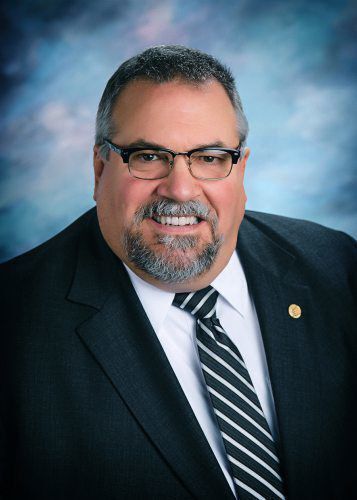More than 950 Dubuque water customers are delinquent in their utility payments, but the city intends to use federal relief dollars to help pay off overdue sums from the period of economic shutdowns related to the COVID-19 pandemic.
“We really hope that everyone gets the assistance that they need,” said Alexis Steger, Dubuque housing and community development director.
On Monday night, City Council members unanimously approved the allocation of up to $675,000 in American Rescue Plan Act funds to finance outstanding water usage payments from March 1, 2020, through June 30, 2021.
“It makes great business sense,” said Council Member Ric Jones. “It makes great humanitarian sense.”
Dubuque stopped assessing late fees and ceased utility shutoffs at the onset of the pandemic. At that time, the city had about $300,000 in outstanding customer payments. By June 1, 2021, that figure had ballooned to more than $675,000.
The customers are: 171 businesses; 513 homeowners or renters who have continued to make payments since the start of the pandemic; 128 homeowners or renters who have not submitted payments since February 2020; 52 renters receiving housing assistance; and 92 homeowners or renters who have established a payment plan with the city and are current with that plan.
Most customers with delinquent accounts are eligible for payment plans and funding through ARPA to cover a portion of their bill that was incurred during the COVID-19 shutdowns.
However, the city cannot use ARPA dollars to assist the 52 renters who receive housing assistance. Federal regulations require that such residents remain current with their utility bills as a condition of the aid, and other mechanisms exist to assist them.
Several of the delinquent business customers are landlords who own rental properties. Several of the units are in violation of the city’s housing code. The city will require those landlords to remediate the properties to qualify for assistance.
The city will resume utility shutoffs on Aug. 1 for customers who are more than 31 days and $125 delinquent. They have three to four weeks to respond before shutoffs occur.
Shutting off tenants’ water might lead to their eviction, Steger previously said, an undesirable outcome that would contribute to the expected increase in displacement after a federal eviction moratorium expires at the end of July.
The moratorium is intended to provide states with additional time to disburse federal rent and utility assistance for those who can show they either lost their job or experienced another significant financial setback caused by the pandemic, but distribution has proceeded slowly in light of a flood of applications.
Prior to Aug. 1, Dubuque staff will send written notices to delinquent account holders, which will include a disconnection date if no payment is received. They also will call customers to inform them of payment plan options.
Staff anticipate that once customers are notified, they will resume payments or make payment arrangements.
Although disconnections will resume, the city will not charge late fees through at least Dec. 31. While that will result in the loss of tens of thousands of dollars of revenue to the city, customers will be able to resolve their accounts without facing an additional burden.
Otherwise, “anyone who doesn’t pay down their bill would have a huge penalty off the bat,” said Utility Billing Supervisor Rose Hoerner.
Once notified of an impending shutoff, customers also will qualify for “crisis” funding from other sources, including the Low Income Home Energy Assistance Program, the Iowa Rent and Utility Assistance Program and Dubuque County general relief dollars.
Before utilizing ARPA dollars, staff will require that eligible customers use those resources. After they do so, the city will not disconnect their water until their applications are processed.
Forty Dubuque customers have applied for relief through the Iowa Rent and Utility Assistance Program, totaling $26,391, but some have been waiting several weeks and others 60 days or more.



